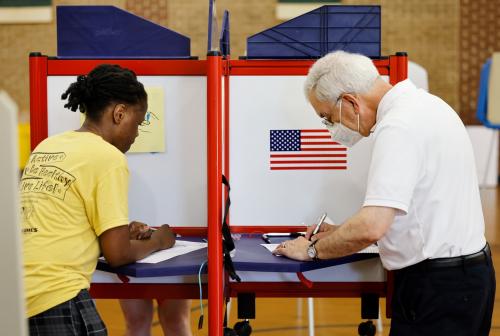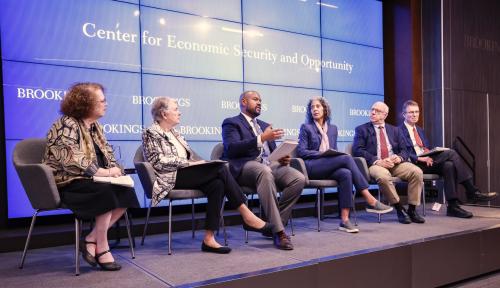After the school shooting in Newtown last year, Connecticut passed comprehensive reforms to address gun violence. Last week, Governor Dannel Malloy discussed the implementation of those reforms in an interview with Brookings’ John Hudak.
The new laws comprise changes to gun control, mental health care, and school safety policies. They include commonly proposed reforms such as an expanded assault weapons ban, universal background checks, limits on the size of magazines, and grants to improve school security infrastructure. However, the laws also include innovative measures such as an ammunition certification system, expanded police seizure power in violent crime investigations, and a violent gun offender registry—to name a few.
Governor Malloy noted, “implementation is going to be very important.” He explained that the state has spent time and resources to ensure that communication systems were refined, backlogs were minimized, and coordination among state agencies was solidified. As citizens, businesses, health care providers, schools, and state agencies begin complying with new regulations, the success of the policies depends largely on the planning and communication of state officials.
The Governor also highlighted a deep interest in employing cost-saving techniques and improving efficiency. In the context of the state’s new gun and ammunition certification systems, the state has effectively met deadlines—in some cases readying paperwork and online processes in advance of those deadlines. By relying on lean analysis of state programs, the Malloy administration is taking steps to improve Connecticut’s ability to provide services to its citizens. In a time when stories about failures in implementation dominate national news, Connecticut serves as a model for government effectiveness, particularly in the area of gun laws.
As the first anniversary of the tragedy at Sandy Hook Elementary School nears, officials across Connecticut are working together, in a bipartisan manner, to meet citizen demands to address gun violence, lapses in the mental health care system, and weaknesses in school safety.



Commentary
Connecticut Governor Malloy on Making Gun Control Work at the State Level
November 20, 2013